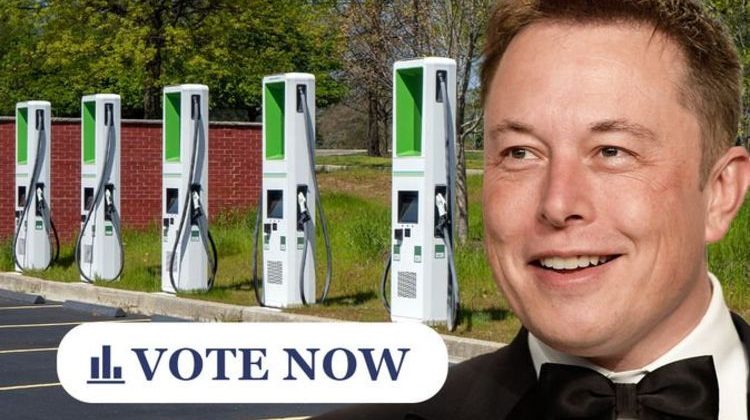Jacob Rees-Mogg meets with electric car campaigner
We use your sign-up to provide content in ways you’ve consented to and to improve our understanding of you. This may include adverts from us and 3rd parties based on our understanding. You can unsubscribe at any time. More info
Tesla has more than 25,000 “supercharger” locations, making it the largest charging network in the world. In the UK there are 16,913 electric charging stations, with 921 new charging devices added in just the last 30 days and more being added week on week.
———————
Last year the Government granted £1.3bn to electric vehicle charging infrastructure in hopes to install five times as many charging points to meet the UK’s net-zero target by 2050.
Tesla currently owns 1,972 of the electric charging devices in the UK that are currently only made to fuel Tesla cars, but Tesla boss Elon Musk has decided to open the system up to other electric car brands.
Tesla’s pilot scheme will start with 10 locations in the Netherlands and later expand world-wide.
The chargers will work with any electric car that features a combined charging system (CCS) port.
BMW, Mercedes-Benz maker Daimler, Ford and the Volkswagen group all provide CCS ports on their electric cars.
Non-Tesla drivers who want to use one of the company’s supercharger stations will need to download its app and create an account.
Britain’s drivers have often cited a lack of convenient charging stations as their reason for not purchasing an electric vehicle, but Tesla’s change will help to solve this issue.
A Tesla spokesperson said: “It’s always been our ambition to open the supercharger network to non-Tesla electric vehicles, and by doing so, encourage more drivers to go electric.
“This move directly supports our mission to accelerate the world’s transition to sustainable energy.”

In March, the Government confirmed that a ban on sales of new petrol and diesel cars has been moved forward to 2030 as part of the net-zero plan.
Transport currently accounts for approximately 30 percent of the nation’s CO2 emissions.
Electric cars don’t emit climate damaging greenhouse gases or health-harming nitrogen oxide, reducing the national carbon footprint and making city centres less polluted.
There is no doubt that electric cars are greener than petrol or diesel cars, but if the electricity needed to fuel electric cars is produced by fossil fuels, then the environmental benefits are thrown off.
As of December 2020, renewable production methods generated 40.2 percent of the UK’s electricity.
But Boris Johnson’s Net-Zero strategy hopes to see this figure increase year on year.
DON’T MISS:
Oxford college to be renamed after airline tycoon makes £155m donation
France POLL: Should PM rip up French energy plans?
COP26: Should UK help India secure $1bn loan to fight climate change?

Electric cars have a reputation for being expensive, mainly because Teslas start at £42,500, but other brands are more affordable and comparatively cheap compared to many petrol and diesel cars.
The average cost of a non-luxury electric car (i.e. not a Tesla) is £26,965 in the UK, but in February 2018 the average cost of a non-electric car was £33,559 according to Car Dealer Magazine.
The Tesla Model 3 was the UK’s best-selling new car in September, according to official figures, with more registrations last month than affordable models from the likes of Nissan, Toyota and Vauxhall.
The company sold 241,391 Tesla cars in the third quarter of 2021 which helped it to achieve a market value of $1 trillion (£733bn) this week, making it the richest car manufacturer in the world.
Over the next few years, the UK will see more and more electric vehicles entering the second-hand market making them affordable for a wider range of buyers.
Would you buy an electric car? Let us know in the comments section.
Stay up to date with science news, discoveries and breakthroughs by signing up for the free newsletter here: /newsletter-preference-centre
Source: Read Full Article
